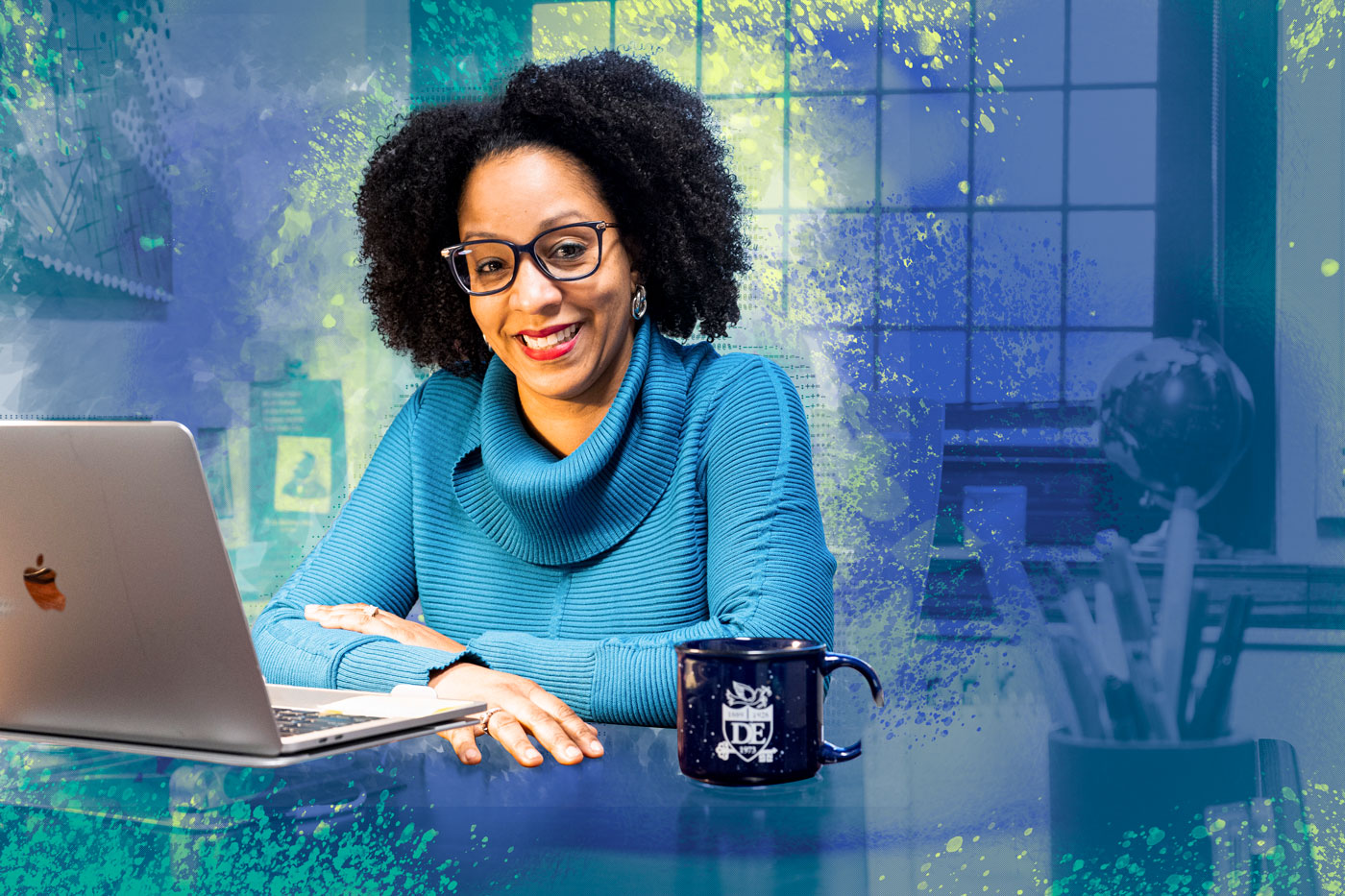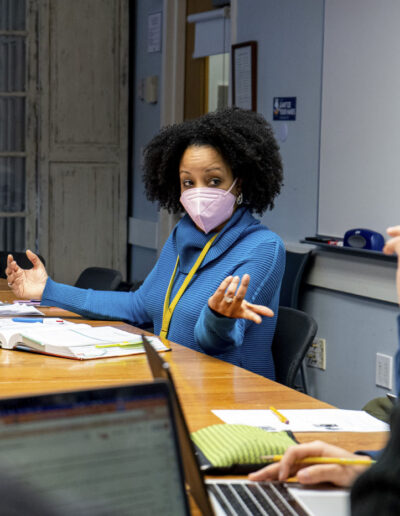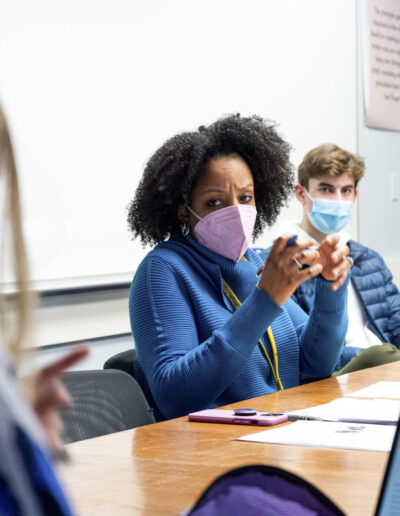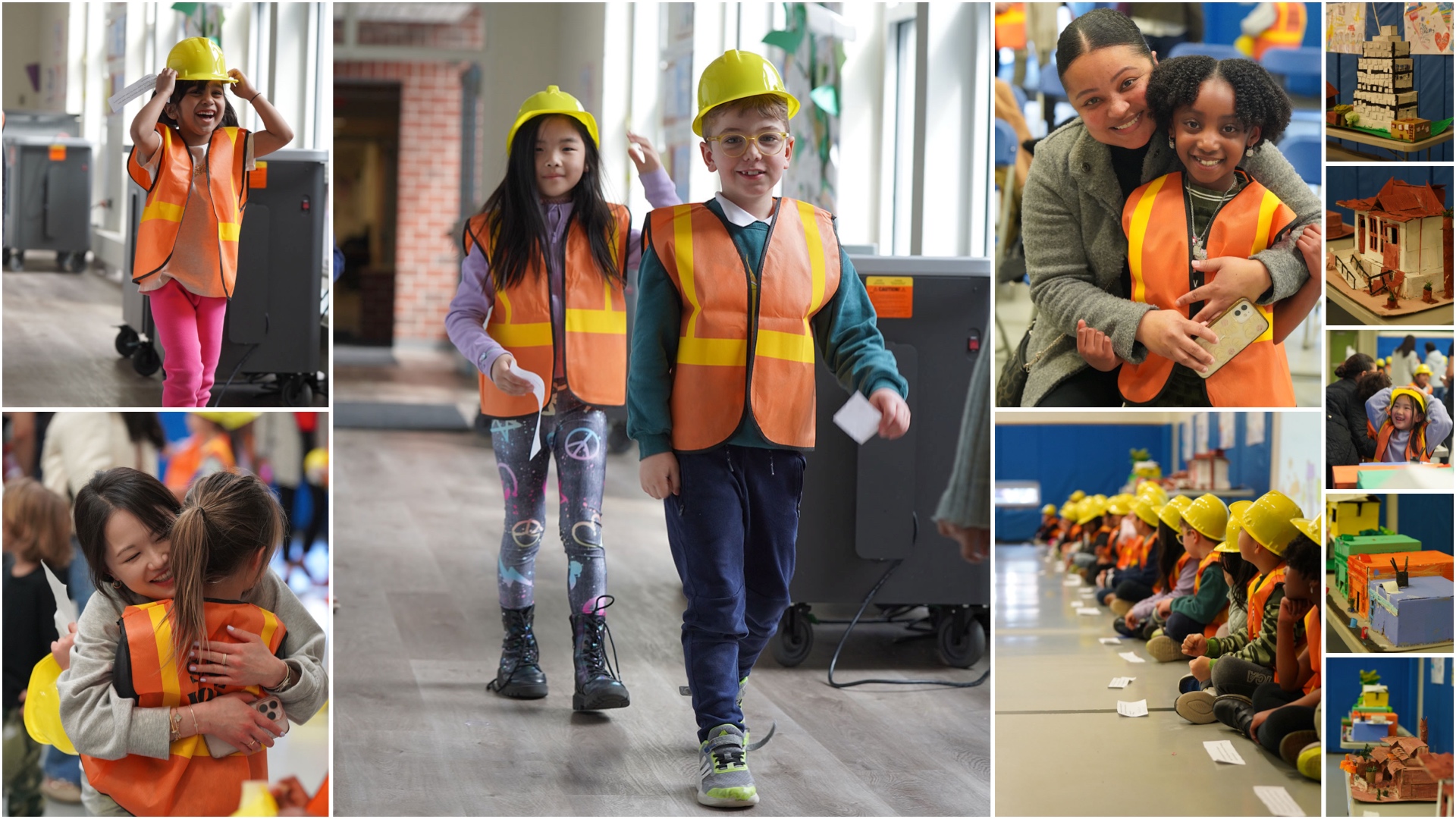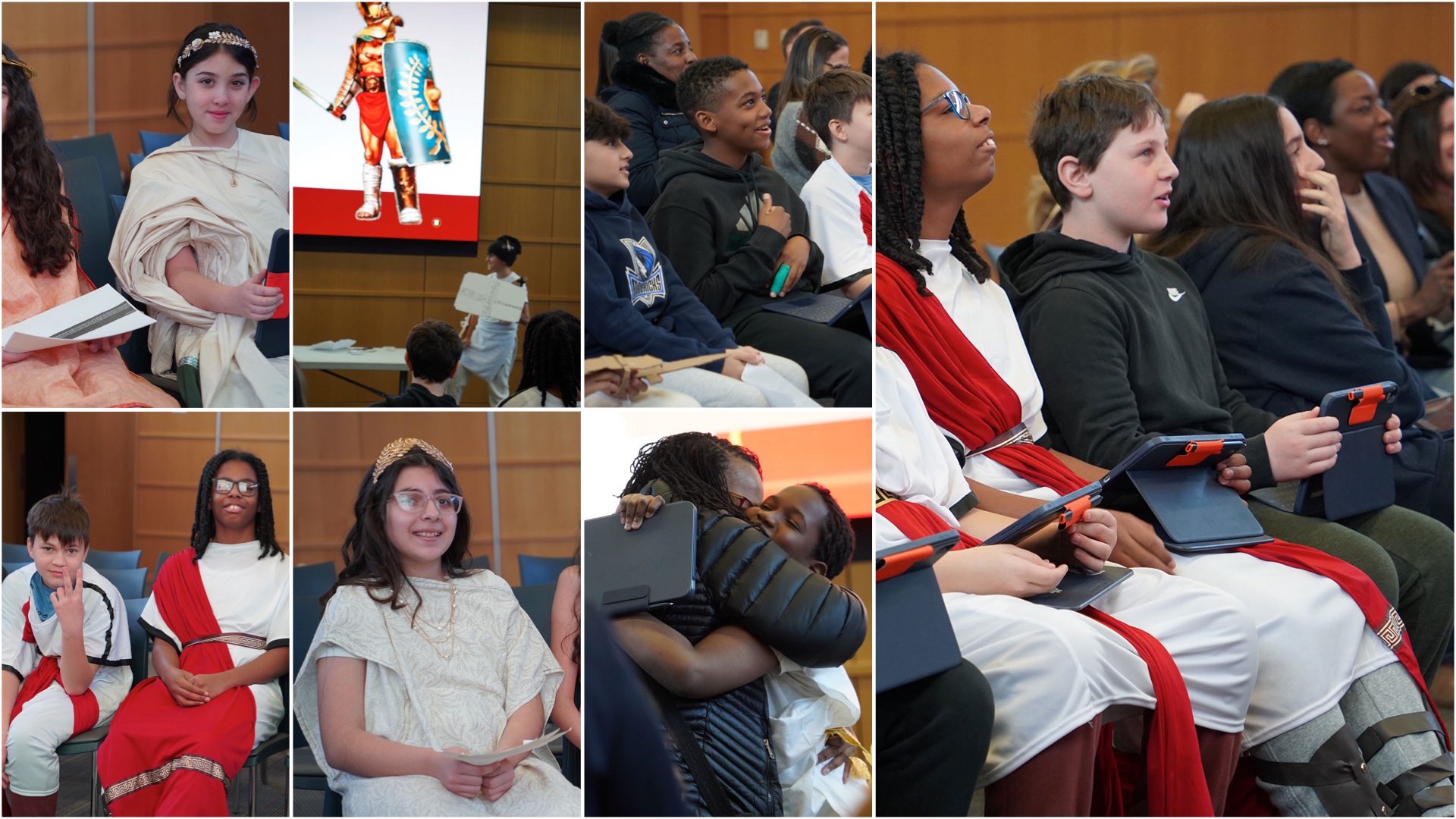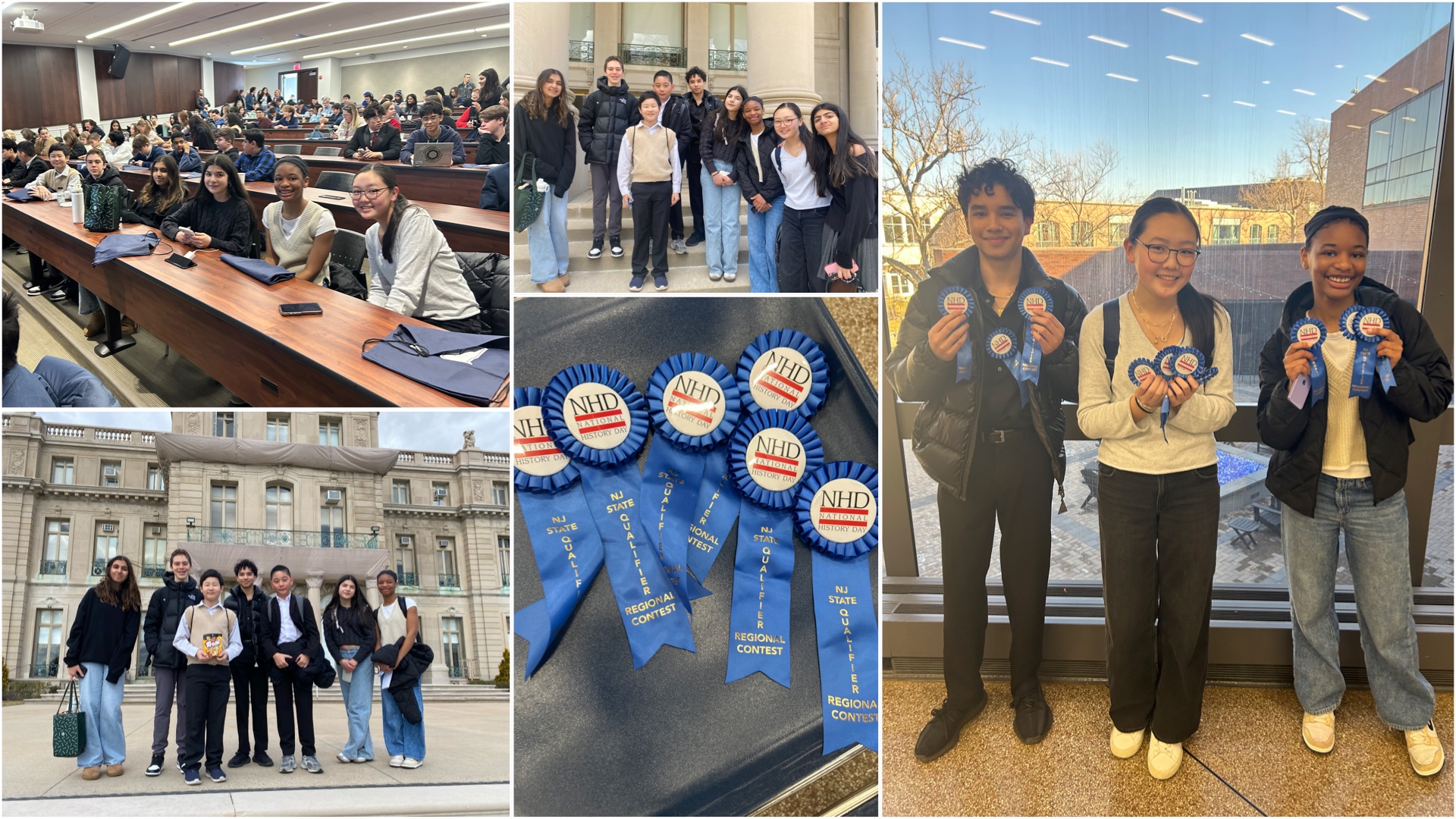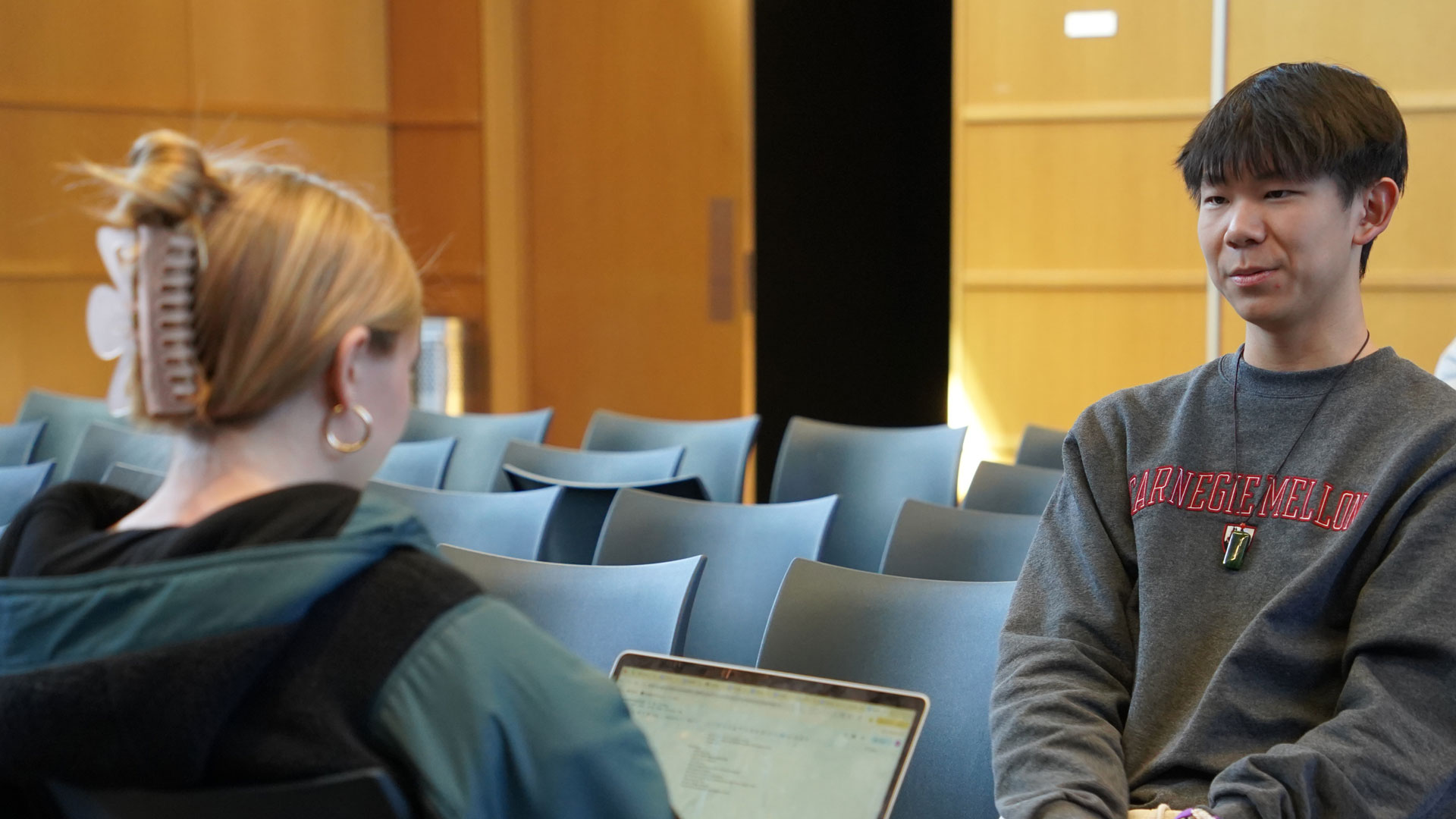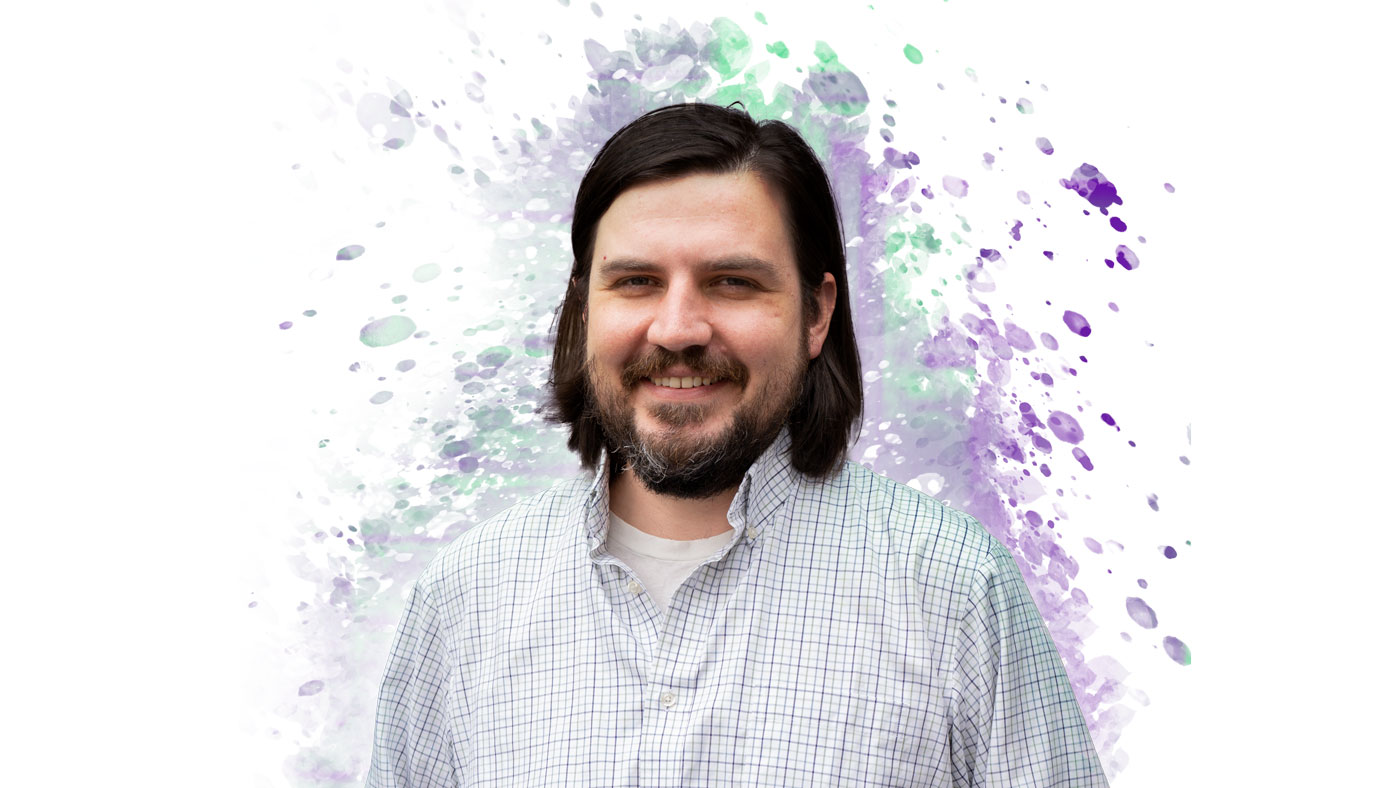Before coming to D-E, History Department Chair, Arika “Ari” Easley-Houser taught at Rutgers Prep and several colleges and universities, including Montclair State University and New York University. A socio-cultural historian focused on United States history, she received her Ph.D. from Rutgers University and a certificate in school management from the Harvard Business School. She was recently selected for a National Association of Independent Schools Fellowship for Aspiring School Heads. Now in her third year of heading the department, Easley-Houser speaks to the importance of historical inquiry for students and how the history curriculum must reflect and respond to the diversity of students. This interview has been edited for length and clarity.
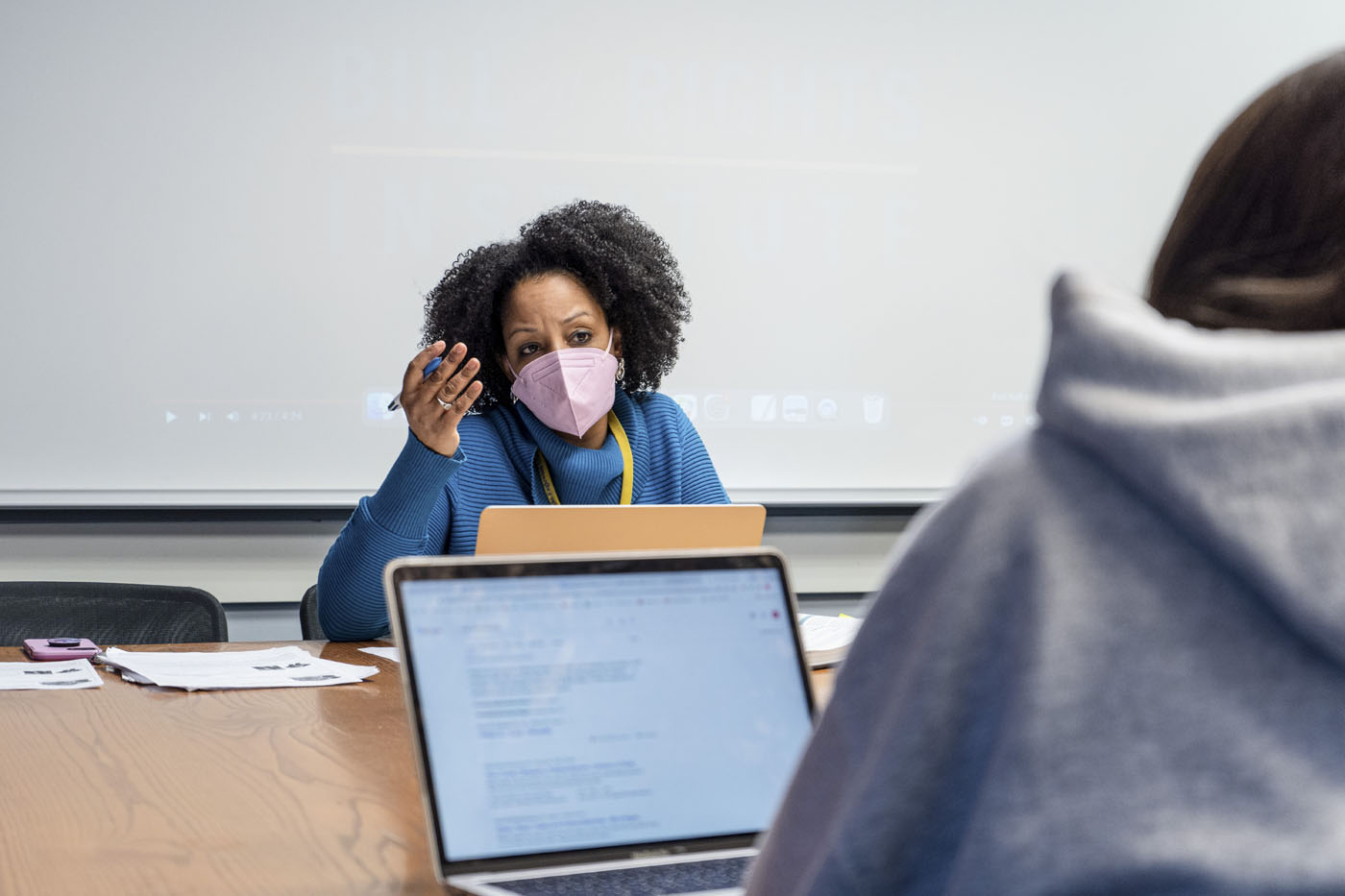
What has been your primary focus as history department chair?
I would say ensuring that our curriculum is cutting edge and culturally responsive is a big one. Looking at what’s going on at the university level and our market of schools, it’s important to think about what our students are reading and writing about in history. Our curriculum needs to reflect our students. For example, in my first year at D-E, I proposed to teach African American history, which we added to our curriculum. Last year for 9th grade we switched the naming of the class. It used to be Ancient Medieval World History, but now it’s Early World History. I like that because it de-centers “medieval time” because it is only a term used to describe Europe. [And] it didn’t represent actually what the curriculum covered. This year we switched one of our 10th grade options, AP Euro, for AP World, a course that was first administered in 2002. AP Euro is typically a course that 70% of high school students take as seniors, and while our [sophomores] have performed well, it’s a big leap to come from 9th grade to that course. The AP World course will be more aligned to the goal of the department to ensure that all students are covering two years of world history, from Early World History as 9th graders to Modern World History as 10th graders with different levels [including college placement, honors seminar and AP]. So each year, we are trying to slowly but surely evaluate our curriculum, tweak, and improve it.
But I would say one thing that appealed to me, [and one reason] why I came to D-E is that I like the US history curriculum and how we have so many lenses. I think it’s so unique; it’s kind of a thematic approach to US history. There are so many options, too: we have a History of New York City class, Hollywood History, the American Presidency etc.
How does the department collectively address refining curriculum?
The teachers who teach the different courses work together to discuss the curriculum and share resources. We also try to ensure that we are moving along towards similar end goals and themes that we cover. There are team meetings by grade, and we also have department meetings once a month. Each year if we are making any curricular changes, those changes get included in the course of study guide that students see when selecting courses for the following school year.
As a department leader, I try to be collaborative, and I am lucky to work with such a talented and passionate group of teachers. They care about the kids, are super experienced, and they all come from such different backgrounds, including a lawyer, a museum educator, training in medieval studies, European studies, etc. One of our newest teachers, Dominic Vendell, has training in Southeast Asian history and background in colonization and imperialism with Indian relations with Great Britain.
Moving forward, I want to make sure that we continue to have great teachers, particularly as we have a lot of veterans in the department. I also want to make sure that our faculty reflect points of view that are diverse, to mirror the diversity of our students because I think that’s important.
You mentioned how you want the curriculum to be culturally responsive. Can you elaborate on that?
I think about the students in the room and their own personal histories, [including] many, especially in this area, many immigrant families, second generation, sometimes first, third generation, but all from different places around the world. So for me, I think culturally responsive teaching is about thinking about the changes in our demographics. You look at our recent census that we just had, and think about all the changes and how those demographics impact what we teach and what our curriculum looks like.
And the books that we assign have to reflect that. If [culturally responsive content] is not in a textbook, then you’re going to have to supplement it with other materials, other visual aids, current events going on, so that students are aware of why history matters. If they don’t see a relevancy to today it just doesn’t make sense. You won’t understand the present.
How do you bridge the past to the present?
So that’s where you have to be careful. I find many students and—many people just in general—are very “presentist.” As a historian, you don’t want to be “presentist,” as in you don’t want to just start in the present. Yes, we can see themes and continuity from the past to today’s events, but we don’t want to leap. You must understand the context of different moments, and how there have been some changes. And then sometimes regressions. It’s a process, [for example] when you study the Founding Fathers. They wrote things that they didn’t actually mean. And then they tried to hide and not mention slavery in the founding documents. I think we’re also at this moment where people are trying to deny history. Thinking about the present, we’re right now into such a tense time with our fractured country politically, that history is at the epicenter of so many of these debates, how it is taught the curriculum, people going into protests and going to school board meetings, and saying they don’t want to teach about.
How do you handle the fact that history has become so politicized?
We’ve done PD (professional development) workshops with our department called “Facing History and Ourselves.” One of the questions in a current events workshop that was posed was: “How do you address your politics?” Also: “How do you address politics in your class?” I stood on the side that you want students to see you as a mediator—that you’re someone who should be a facilitator of debate, and you should be respectful of both sides. But we don’t allow offensive statements. That’s where you have to draw a line.
You can’t have anybody in the room feel that they don’t belong because of their identity. I don’t tolerate that. That’s where I feel like you have to assert yourself just as an educator, but also I attach it to the mission statement, the school, and to our code of conduct.
So then how do you consider those perspectives and foster that discussion in the classroom? How do you navigate through it?
I just try to be very sensitive, I try to call out statements. We’re in a classroom, there has to be dialogue. It’s called civics for a reason, right? It can be tense. [I’ve had to follow up with students after class to make sure they are OK.]
What do you imagine for the future of the department?
I’m excited about developing more partnerships with the Lower School because that was something in the [most recent] accreditation [renewal self-study] report; the report found that the scope and sequence was better for Middle and Upper [Schools] but then Lower School is kind of doing its own thing. And I know the former Lower School principal made some modifications, but there’s still some improvement; there’s still some things they can do.
Seventh-grade teacher Matt Schade has developed a curriculum that has students researching world problems. What else is especially exciting in the Middle School these days?
What they do is a lot of debate about world problems, and they’re doing it [in interesting ways]. I’m really impressed with it. What’s nice is now we’re looking at other resources. So this year, in fact, we purchased a resource from TCI. [The Teacher’s Curriculum Institute offers dynamic activities and adaptable lesson plans].These projects are like little opportunities that kids can do that can kind of make learning more engaging. So they’ve been using some of those this year.
Eighth grade is the curriculum that’ll probably have more drastic changes, because the current name of the class is Revolutions. And that’s not really what the curriculum is about––that class I feel like really needs to be much more centered on identity, your family, really thinking about America, thinking about the voices, and the fabric of this country. The 8th grade is so diverse, and they did a project on Ellis Island last year, and you can feel that excitement when they’re proud of their identities. And I think you want to make sure that it just reflects, again, back to culturally responsive teaching and the curriculum. Instead of just focusing on revolutions, we want to think about: Who is an American? Who gets to decide who’s an American? Because, of course, over the course of American history, that has changed. I love that guiding question. They’re ready, and that age group is so hungry to learn more.
What do you want a student leave D-E with? What do you want in their toolkit?
By graduation, I hope they leave with a curiosity about how the world has come about, about how our nation has gotten to this point, and hopefully being thirsty to learn more and learn deeply. Also, knowing how to write a thesis and have a strong toolkit for writing. When our students come back from college, they tell me that they now help their friends who didn’t get the [skills development] support that we try to provide. Because whether you’re in STEM or history, you’re going to need writing and critical thinking skills.

